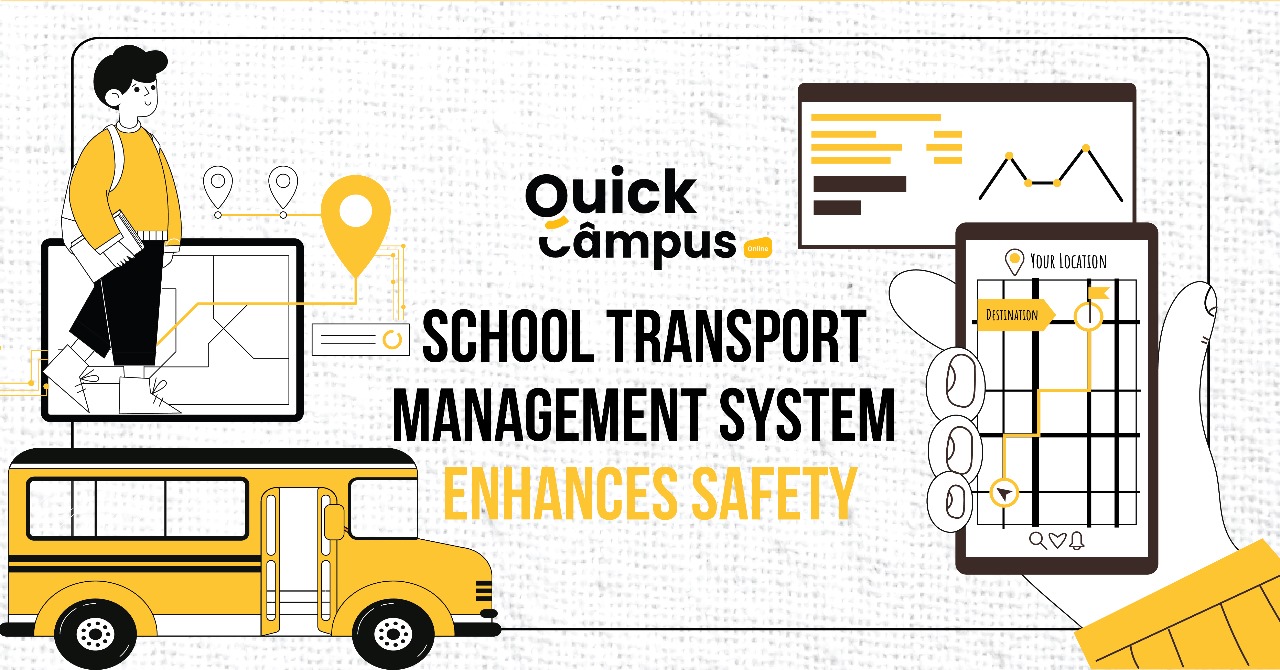Advantages Of School Management System
In today’s digital age, schools are increasingly turning to technology to streamline their operations and enhance the overall learning experience for students. One such technological solution that has gained popularity in recent years is the School Management System. This innovative software tool offers a wide range of benefits for institutions, teachers, parents, and students alike. Let’s explore the various advantages of integrating a School Management System into educational institutions.
What Is The School Management System?
Managing data is a crucial aspect of any organization, including schools. A school management system is an information system designed to manage student data. It allows teachers to access information about students’ performance and weaknesses, reducing their workload. School management systems store a track of student data, including exam grades, parent information, medical history, and tuition fees. These systems also offer features such as a student registration system, class documents, analytical grades, and other assessment elements. They assist in planning the curriculum, recording attendance, and managing the needs of students within the school.
School management solutions are applications with centralized data storage structures that make it easier for administrators, teachers, students, and parents to access data from mobile devices.
Key Features Of School Management System
Here are the key features of a school management system:
1. Student information management for comprehensive data tracking.
2. Automated attendance tracking to monitor student presence.
3. Grade management system for efficient assessment recording.
4. Communication tools for seamless interaction between stakeholders.
5. Timetable management for organized scheduling of classes.
6. Fee management module for transparent financial transactions.
7. Reporting and analytics for data-driven decision-making.
8. Examination management for streamlined test administration.
9. Integration with Learning Management Systems (LMS) for enhanced educational resources.
10. Library management system for efficient resource tracking.
Benefits of School Management System
Here are some key benefits of the school management system :
1. Streamlining Administrative Tasks
One of the primary advantages of a School Management System is its ability to streamline administrative tasks. From managing student records to tracking attendance and scheduling exams, this software automates and simplifies various administrative processes, saving time and reducing the likelihood of errors.
2. Enhancing Communication
Effective communication is essential for the smooth functioning of any educational institution. A School Management System facilitates seamless communication between teachers, students, parents, and administrative staff through features such as messaging platforms, emails, and notifications, fostering a collaborative learning environment.
3. Centralized Data Management
Gone are the days of scattered paperwork and manual record-keeping. A School Management System provides a centralized platform for storing and managing academic and administrative data, allowing authorized users to access information quickly and securely.
4. Automated Attendance Tracking
Keeping track of student attendance is a time-consuming task for teachers. With the help of the School Management System, integrated with the attendance management system it becomes easier for teachers to monitor student attendance and identify patterns of absenteeism.
5. Improved Parental Involvement
Parental involvement plays a crucial role in a child’s academic success. A School Management System enables parents to stay informed about their child’s academic progress, attendance, and behavior, empowering them to take an active role in their child’s education.
6. Enhanced Security Measures
Data security is a top priority for educational institutions. A School Management System comes equipped with robust security measures to protect sensitive information and ensure compliance with data protection regulations, giving stakeholders peace of mind.
7. Efficient Resource Management
Optimizing resources is essential for the sustainable growth of any institution. A School Management System helps schools track and manage resources such as classrooms, equipment, and staff efficiently, leading to cost savings and improved operational efficiency.
8. Customized Reporting And Analytics
Data-driven decision-making is made possible through customized reporting and analytics features offered by a School Management System. Schools can generate detailed reports on various aspects of academic performance, attendance trends, and more, enabling them to make informed decisions to enhance educational outcomes.
9. Integration Of Learning Resources
Modern education emphasizes the use of digital learning resources to enrich the learning experience. A School Management System facilitates the integration of online learning tools, educational apps, and multimedia content, enabling teachers to create engaging and interactive lessons.
10. Facilitating Online Learning
The COVID-19 pandemic has accelerated the adoption of online learning. A School Management System supports virtual learning by providing a platform for hosting online classes, sharing educational materials, and conducting assessments, ensuring continuity in education during challenging times.
11. Enhancing Staff Collaboration
Collaboration among teachers and staff is essential for creating a supportive learning environment. A School Management System promotes staff collaboration through features such as shared calendars, task assignments, and group messaging, fostering teamwork and innovation.
12. Cost Efficiency
Implementing a School Management System can lead to cost savings in the long run. By automating repetitive tasks, reducing paperwork, and optimizing resource allocation, schools can operate more efficiently and allocate resources effectively, ultimately reducing operational costs.
13. Scalability And Adaptability
Educational institutions are constantly evolving to meet the changing needs of students and society. A School Management System offers scalability and adaptability, allowing schools to customize the software to suit their specific requirements and scale operations as needed.
Conclusion
In conclusion, the advantages of using a school management system are clear. The benefits extend across all school operations, from increased efficiency and productivity to enhanced communication and collaboration. By leveraging technology to streamline processes and improve decision-making, educational institutions can focus on what truly matters – providing quality education to students. Embracing a school management system is not just a choice but a necessity in the modern educational landscape.












